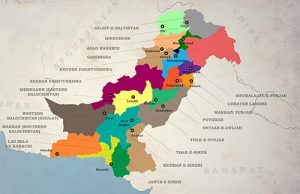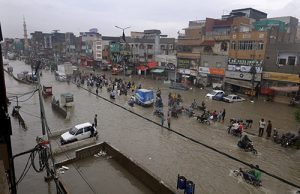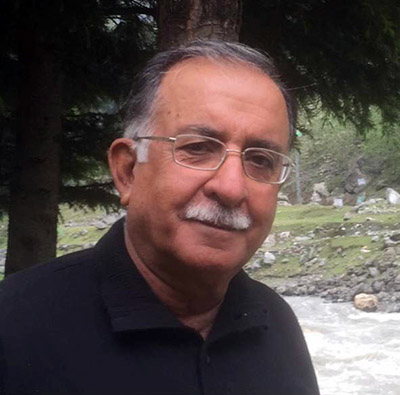Good governance (GG) has become a buzzword in Pakistan and is used commonly to describe the state of affairs in government institutions, be they at the federal, provincial or local level.
What is governance? In ordinary language, it is management. Unlike the countless columns written by experts/professionals on issues directly or indirectly concerned with governance, I would rather focus on solutions and the way forward.
However, to emphasise the need for GG, it would be appropriate to highlight the problems being faced by the people — unemployment, inflation, lack of basic necessities such as housing, education, health and public transport. Do I need to elaborate?
Switching from GG to the more understandable term, GM (Good Management), requires us to adhere to certain basic parameters, which are, meritocracy, adequate compensation linked to key performance indicators (KPIs), accountability, and authority with responsibility. But this is not enough. I would like to see Corporate Pakistan at all the three tiers of government — federal, provincial and local. This is so obvious and sounds like music to the ears but the reader has a right to question, how? Well, the answer is simple, and yet not so simple.

Let’s look at our state structure which we call a Federation. It has one province — the Punjab — which is larger than the other three combined (in terms of population). This unbalanced state structure is not sustainable; obviously there is an impression of domination (which is a fact) and a feeling of deprivation (not so obvious in Sindh and Khyber Pakhtunkhwa, but definitely so in Balochistan).
The solution lies in the creation of more provinces. I will not venture to suggest a number because this is a matter of research, based on socio-economic and political issues/reasoning. However, it should be emphatically clear that the creation of more provinces is a political process and cannot be architecturally imposed. For starters, this issue should be brought out in the open through the media — print, electronic and social. The federal government should initiate the process and take up this matter in the National Assembly and Senate, followed by the provincial assemblies; and also in the Council of Common Interests (CCI). Public opinion should be sought from experts by holding discussions on TV channels and interactive public hearings via Zoom.
It is pertinent to mention here that in the legislative and administrative restructuring, making Southern Punjab a separate province is already on the cards. This begs the question, why the delay in implementation? The sooner, the better, as this would serve as a pilot project and various unforeseen problems would come to light. Even if the newly created province is not fully autonomous, there will be a lot of lessons to be learnt. As stated earlier, the process of devolution, decentralisation and distribution of powers is a political process and needs to be organically and gradually adjusted to the ground realities — the sole objective being the socio-economic welfare of the people.

Coming to the next tier of government, the most important one is the Local Government. This is where the actual service delivery takes place. It may be categorised into three main divisions: the Metropolitan, the City, and the Town governments. Further down the ladder would be the Councils. Let us now examine the need of this tier and understand its importance, taking Karachi as an example.
A metropolis of Sindh, Karachi has a population of 16,051,521 (census 2017), which is more than that of 128 countries of the world where there are full-fledged, all powerful federal governments. Now one can understand why Karachi is in shambles — a broken down city overflowing with garbage and virtually non-existent low-cost housing, education and health facilities and no public transport. Inspite of these adversities, the Karachiites have shown great resilience — and how can we forget those decades of political violence; Karachi keeps on bouncing back. It is the commercial capital of Pakistan and its financial and industrial hub. It generates more than 50 per cent of the federal and more than 90 per cent of the provincial revenues. It desperately needs an empowered metropolitan government.
Pakistan is not a poor country, it is a poorly managed country. One feels ashamed when our leaders have to go around the world with a begging bowl. Good governance should not be mere political rhetoric. All political parties (as is clearly spelt out in their manifestos) are committed to decentralisation, devolution and distribution of powers between the various tiers of government. It is about time they deliver. Alternatively, civil society — the professionals, industrialists, traders, the media, the unions and non-profit organisations (NPOs), should frame a citizen’s charter and hammer it home in an organised and civilised manner.
Finally, the youth (all those between 25 to 45 years old) have a special role to play. To quote from ‘A Country Betrayed,’ an op-ed piece in The News International written by a former Ambassador to the US, China and India, Ashraf Jehangir Qazi, “The country’s future, for better or for worse, rests on their young shoulders… And the youth of Pakistan have the purity of intent to learn to do what it takes to ensure increasingly better outcomes and, thereby end the betrayal of their country and their future.”

The writer is a businessman, civil rights activist and the former chief of the Citizens-Police Liaison Committee (CPLC).


